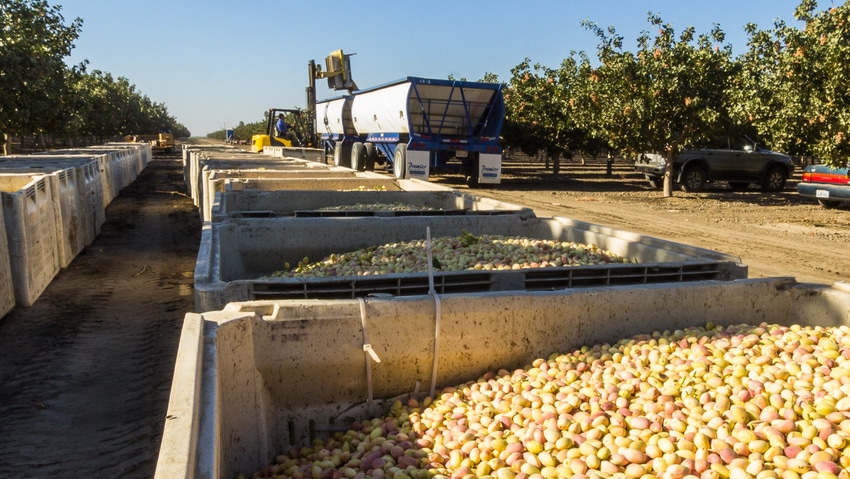
Agricultural exporters throughout the West continue to struggle with a months-long fight for empty shipping containers to move billions of dollars in U.S.-grown commodities from West Coast ports to China and other destinations.
Peter Schneider, president, T.G.S. Logistics in Fresno, Calif., said the steamship lines were caught prioritizing empty containers for quick ship to Chinese ports, only to be loaded with consumer goods destined for U.S. destinations. These empty containers could quickly be turned around at greater financial return to the maritime shippers for movement back to the United States, he said.
The issue troubled agricultural exporters looking to put commodities into containers destined for China. Because of the added turn-around time of containers with agricultural goods shipped to the Asian nation – these containers tend to be delivered inland for emptying and return processing, adding several days to their turnaround time – it is more lucrative for the shipping companies to run empty containers back to China to be refilled and quickly shipped.
The issue of sending empty containers to China apparently peaked in the fall, Schneider said. Since getting caught with this practice, the shippers have backed off a bit, but logjams remain within the shipping supply chain, he said.
As U.S. consumers seek normalcy after a year of COVID-19 lockdowns, and China's move away from restrictive measures that slowed the world's economy, Schneider and others say more consumer goods are being shipped from China to the United States, creating a large and sustained demand for shipping containers. This would normally slow after Christmas and Chinese New Year, but Schneider says that has not happened this year.
U.S. trade officials sent a letter to President Joe Biden's administration, apparently asking for a tougher stance against China and the shipping companies, industry insiders say.
Nuts and perishables
The impacts are hurting California tree nut exporters particularly hard as almond prices tanked due to oversupply and growers are trying to recover from a global economic meltdown. The inability to ship agricultural goods from California has drawn allegations of Shipping Act violations that are being looked at the Federal Maritime Commission.
Jim Zion, managing partner with the Fresno-based Meridian Growers said the tree nut industry saw bookings for shipments delayed or cancelled at the close of harvest season because of the high volume of freight coming to the U.S. This was compounded by reports of dozens of container ships forced to anchor offshore at Oakland, Los Angeles, and Long Beach due to backups at the docks.
Available space to store agricultural goods is at a premium and the chassis' necessary to haul these containers behind a big rig are all committed. Containers with stored goods waiting placement on ships are stacking up in yards as CNBC reports that maritime carriers rejected more than 177,000 containers in October and November.
Additionally, container ships are sitting at anchor offshore longer than usual and unloading them is taking longer amidst labor shortages related at least in part to COVID-19.
'Anything that floats'
The need for "anything that floats" is also causing carriers to bid for second-hand space on other vessels, further compounding problems that some say will affect all forms of ocean travel, according to Loadstar, a trade publication.
Meanwhile, shipping costs to agricultural exporters have doubled, according to Schneider. The backup of goods waiting to leave California ports is causing issues with available equipment and the physical space to store these goods, he said.
It is not just West Coast ports affected by this. Other ports across the country are impacted and shipping lanes across the globe are affected by the shortage of shipping containers.
Vessels are "overbooked," according to Schneider, who says he has seen repeated delays on date commitments promised by the carriers.
About the Author(s)
You May Also Like






